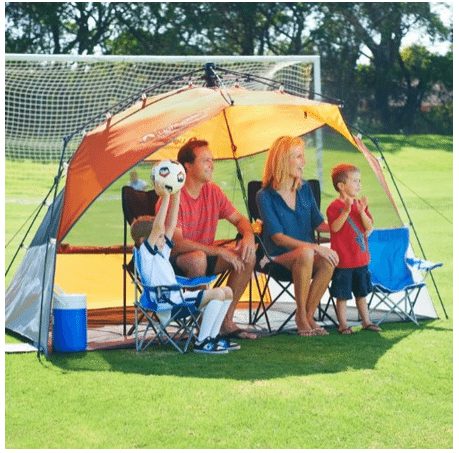 In my many years of teaching baseball and softball, coaching and parenting, I have noticed that parents often put pressure on kids without even realizing that is what they are doing. This pressure leads to tension between parents and their sports playing kids that may never go away. Parents feel like they are just trying to help their kids but the kids are getting a different message.
In my many years of teaching baseball and softball, coaching and parenting, I have noticed that parents often put pressure on kids without even realizing that is what they are doing. This pressure leads to tension between parents and their sports playing kids that may never go away. Parents feel like they are just trying to help their kids but the kids are getting a different message.
Of course, it is important to realize that small amounts of tension between parents and kids are unavoidable because of the various emotions that playing youth sports creates for all. Occasional tension, frustration and failure to meet expectations is normal and does not threaten long-term relationships. However, parents often overdo their scrutiny of their child’s play and stain their relationship with their kids.
Following are things parents should observe that will help them to know if they are putting excessive pressure on their kids.
1. Kids get mad every time you say something about their play.
2. Kids will not practice with parent or always leaves practice mad at their parent.
3. Kids are constantly looking to parent when they do something good or bad on the field.
4. Kids seem to perform better when parent is not at game.
Additionally, some parental statements seem pretty innocuous on the surface but eventually they create tension and resentment. At the very least, these statements and questions can take the fun out of play for kids. (Listed from bad to worse)
1. Why did you do that?
2. What were you thinking out there?
3. Why didn’t you do what I told you to do?
4. When I was your age, I could already do
5. You have to practice more
6. Look at me when I talk to you
7. I thought you wanted to play
8. That was embarrassing
9. You will never get anywhere doing that
10. Do what I tell you and not what your coach tells you to do
11. I am not paying for you to play if that is how you are going to play
12. Forget it; I am not coming to your games anymore
Once again, some of these may seem like legitimate questions but the emotional way they are said or asked, automatically create tension in kids. The good news is that positive parents, who avoid using these statements, will eliminate unnecessary tension with their kids.
July 15, 2025


![[Show Name] Gripping From Beginning to End [Show Name] Gripping From Beginning to End](https://images.unsplash.com/photo-1596405367208-63505402f113?fm=jpg&q=60&w=3000&ixlib=rb-4.1.0&ixid=M3wxMjA3fDB8MHxzZWFyY2h8MTh8fGhpZ2glMjBwb3RlbnRpYWwlMjB0ZWxldmlzaW9uJTIwc2hvd3xlbnwwfDB8MHx8fDI%3D)

![Best Family Law Attorney in [Your City/Region] Best Family Law Attorney in [Your City/Region]](https://images.unsplash.com/photo-1731955418581-5ba6827ca5ff?fm=jpg&q=60&w=3000&ixlib=rb-4.1.0&ixid=M3wxMjA3fDB8MHxzZWFyY2h8MTN8fGJlc3QlMjBmYW1pbHklMjBsYXclMjBhdHRvcm5leSUyMG5lYXIlMjBtZXxlbnwwfDB8MHx8fDI%3D)





